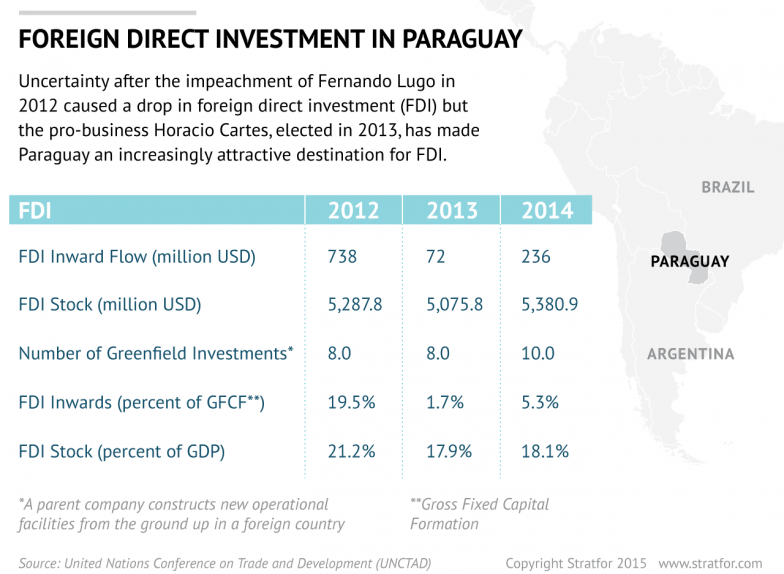
Paraguay is becoming a hotspot for economic growth even as most of Latin America is being hit hard by the downturn in global commodity prices. The country's small but robust low-end manufacturing sector lies at the heart of this growth, buoyed by business-friendly tax incentives and low wages. Meanwhile, the Paraguayan economy is becoming increasingly diverse.
Like most in Latin America, Paraguay's economy is largely driven by commodity exports. The country is the world's fourth-largest exporter of soybeans, sixth-largest exporter of corn and 10th-largest exporter of wheat. But over the past decade, Paraguay's manufacturing boom has spurred the country's diversification away from a primarily commodity-based economy to one broadly based in different sectors. While Paraguay is still reliant on commodity exports, the country has seen substantial growth in industries such as textiles, pharmaceuticals and auto parts. Their growth has been aided by business- and investment-friendly policies pursued by the government of Paraguayan President Horacio Cartes, who came to power in 2013. The country employs a flat 10 percent rate on income tax and a value-added tax that is the lowest among Mercosur members and one of the lowest in Latin America.
These policies have also made Paraguay an attractive destination for foreign direct investment. According to Brazil's National Confederation of Industry, 42 Brazilian companies have moved to Paraguay in the past few years in search of lower labor costs and preferential tax rates. The contrast to its neighbors is striking: In Brazil, businesses must pay a 25 percent income tax in addition to other taxes and fees. Many of the new businesses are textile companies, and Brazilian officials have said they hope to use Paraguay to replace Chinese imports.
Paraguay's position as a low-end manufacturing center will likely improve in the coming years, especially as China transitions away from a low-wage, high-growth exporting model and companies from Brazil and elsewhere seek to exploit Paraguay's favorable regulatory and tax structure. Paraguay is thus well positioned to maintain its place as one of the fastest growing economies in South America far beyond 2015.



